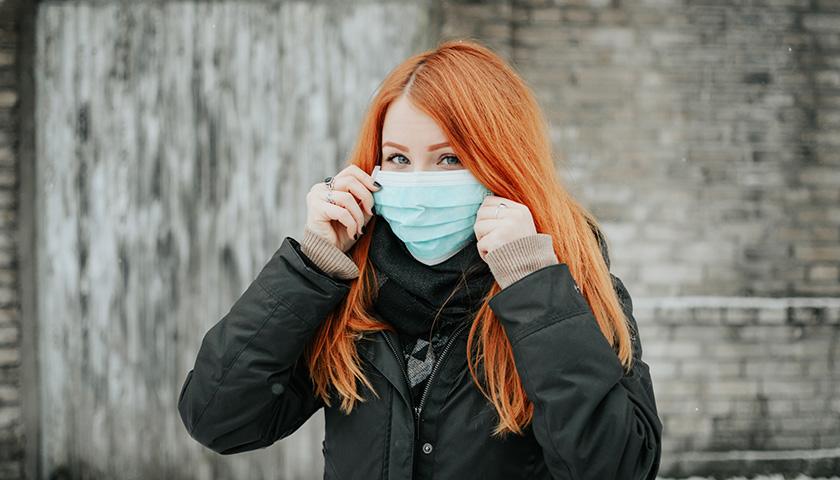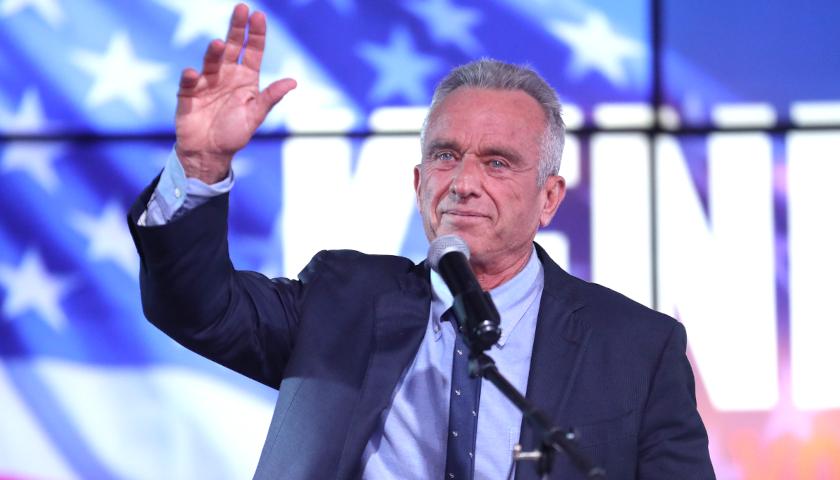by Greg Piper
Government-backed assumptions about the safety and effectiveness of high-quality mask-wearing against COVID-19 are facing scrutiny from new international research that shines a harsh light on the feds’ continued faith in face coverings.
Surgical and N95-grade masks might induce symptoms misidentified as biologically elusive “long COVID,” according to a “systematic review” in the peer-reviewed Swiss journal Frontiers in Public Health. It echoes a recent study of Norwegian adolescents and young adults on long COVID’s connection to “loneliness” and physical inactivity — conditions exacerbated by pandemic interventions.
A U.K. government metareview found no real-world evidence that N95s and equivalent masks protect those at highest risk of severe COVID, while a U.K. hospital study found “no discernible difference” from surgical masks in “reducing hospital-acquired SARS-CoV-2 infections.”
They join a metareview of several dozen randomized controlled trials, updated in January, that found surgical and N95-grade masks made “little to no difference” on either influenza-like or COVID-like illness or “laboratory-confirmed” infections. CDC Director Rochelle Walensky dismissed the study’s validity because of its reliance on RCTs.
New York Times columnist Zeynep Tufekci apparently spooked Cochrane, the British-based research collaborative that publishes the ongoing 17-year study, into publicly undercutting the authors’ interpretation of the findings, though Cochrane has since contradicted her claim that it made a “correction.”
Coauthor and University of Oxford epidemiologist Tom Jefferson also demanded the Times examine the “personal agenda” of Tufekci, a sociologist who reversed herself on masks between February and March 2020, and her attempted “subversion of the scientific process” and “personal attack” on him.
The Times didn’t answer Just the News queries.
❤️I have a crush on Tom Jefferson
https://t.co/eugGJTbaf9 pic.twitter.com/ebr1sxPsmr
— GeroDoc (@doc_gero) April 12, 2023
German, Austrian, Polish and Indian researchers in the Frontiers study found “mask-induced exhaustion-syndrome” and “down-stream physio-metabolic disfunctions [sic]” resulting from wearing surgical and N95 masks, which can have “long-term clinical consequences,” especially for children, pregnant women, elderly and ill people.
Starting with more than 2,000 German- and English-language studies, they culled the research to 54 publications for synthesis and 37 for meta-analysis. Only 14 were RCTs, which the researchers said have trouble measuring “causes with a long latency period.”
They found “significant effects” from surgical masks and especially N95s: decreased “peripheral oxygen saturation” and volume of gas inhaled or exhaled per minute, “simultaneous” with increased blood-CO2 concentration, heart rate, systolic blood pressure, skin temperature and humidity.
Citing a Journal of Infectious Diseases long-COVID study by University of Michigan researchers, the Frontiers researchers found nearly 40% of those symptoms “overlap” with mask-related complaints and symptoms. “It is possible that some symptoms attributed to long-COVID-19 are predominantly mask-related,” they wrote, calling for further research.
The median mask-wearing duration was 18 minutes, ranging from 6 minutes to 6 hours depending on the study. While a “short application of the mask seems to be less harmful, longer and long-term use may cause shift [sic] toward the pathophysiological direction with clinical consequences even without exceeding physiological thresholds,” the researchers said.
https://twitter.com/kevinnbass/status/1645825293779865600?ref_src=twsrc%5Etfw%7Ctwcamp%5Etweetembed%7Ctwterm%5E1645825293779865600%7Ctwgr%5E2ab81133add067f0e1bcbeb21e042f2c450c782c%7Ctwcon%5Es1_&ref_url=https%3A%2F%2Fjustthenews.com%2Fpolitics-policy%2Fcoronavirus%2Finternational-research-suggests-masks-better-causing-long-covid
The U.K. Health Security Agency queried more than 4,000 studies published through September for a “rapid review” of the effectiveness of N95-grade masks, fit-tested or not, as “wearer protection” against COVID for high-risk groups, including those with weakened immune systems and brain and nerve conditions.
It couldn’t find any fitting those conditions, however, in searches of databases for peer-reviewed and preprint articles. UKHSA didn’t include evidence from other infectious diseases or “conduct an extensive search” of sources such as public health organizations’ websites.
The agency emphasized that its prior review of face coverings in the general population found they reduce transmission “through source control, wearer protection, and universal masking.” It ignored red flags in one of the RCTs it cited, including no effect for surgical masks under age 50, while downplaying the conclusiveness of a contrary RCT, however.
St. George’s Hospital in London used the end of National Health Service surgical-mask mandates in June to determine whether they affected hospital-acquired COVID infections from the start of Omicron variant dominance.
In a “special early release” from the European Congress of Clinical Microbiology & Infectious Diseases, which begins this weekend, the researchers said they analyzed “routinely collected infection control data” between December 2021 and September 2022.
2. Latest research from the UK suggests benefit of mask-wearing is likely modest. https://t.co/NoYjS6I3ts
Wow. This is just like Cochrane said.
Unlike @zeynep these researchers don't peer review research in NY Times essays. They do the actual hard work. pic.twitter.com/zUTtCHSwHv
— Paul D. Thacker (@thackerpd) April 7, 2023
Pre-June, all staff and visitors had to wear four-ply “fluid-resistant” surgical masks in all areas, while the hospital chose to keep the policy for staff in “a subset of high-risk wards” from June onward. Not only did the infection rate show no “statistically significant change” during a “general community surge” in June, but there was no “delayed effect” in either group.
Lead author Ben Patterson concluded the face coverings’ “real-world benefit in isolation appears to be, at best, modest in a healthcare setting.”
Mask mandates are in retreat for the moment, following both successful legal challenges and also COVID’s decreasing severity. Hospitalizations and deaths unexpectedly plunged early in the new year, likely due to “viral interference” from flu and RSV and built-up immunity from recovery and vaccination, experts told NPR.
Mandates seem most likely to return in healthcare settings, given an Occupational Safety and Health Administration proposal hidden from the public that earned cheers from a pro-mandate nurses union. Longtime holdouts Oregon, Washington and California all lifted their healthcare mask mandates on April 3, according to AARP’s state mask mandate tracker.
One notable holdout in K-12 education is Ithaca’s pricey Elizabeth Ann Clune Montessori School, recently profiled in The Free Press for still requiring children to wear masks inside and outside and eat lunch without talking.
– – –
Greg Piper has covered law and policy for nearly two decades, with a focus on tech companies, civil liberties and higher education.
Photo “Woman Wearing COVID Mask” by Pille R. Priske.






Masks do not prevent the spread of COVID outside of very specific situations of close provider/patient contact as PART of a larger prevention regimen. Forcing the public and healthcare workers to wear masks outside of that is nothing more than a control grab. Apparently they are going to beat the dead horse to death forever.